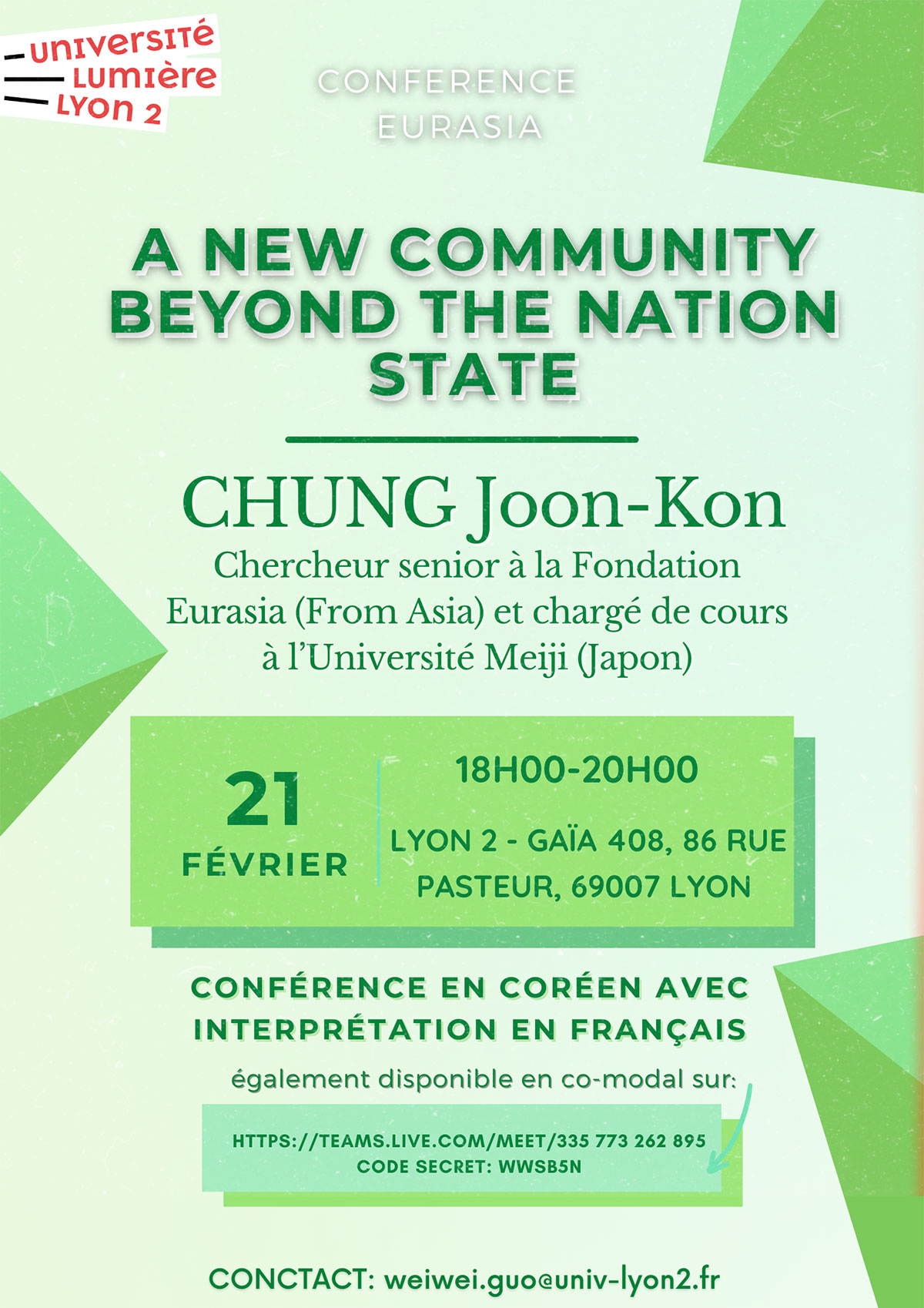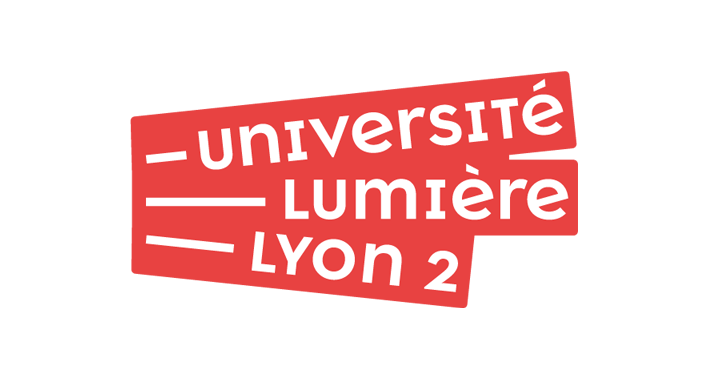Une conférence en coréen avec interprétation en français de KANG Yoon-ok, professeure à Myongji University (Corée), proposée dans le cadre du cycle multidisciplinaire sur les cultures et sociétés en Asie orientale
Today, in a society profoundly shaped by globalization, the role of sovereign nations is undergoing momentous changes. We are facing a situation in which existing nation states are nearly powerless by themselves, and the very idea of nations and individuals is being called into question.
The 2011 Great Eastern Japan Earthquake and the accompanying nuclear disaster, and the 2020 novel coronavirus pandemic have shocked humanity beyond imagination. These unprecedented experiences have highlighted problems in modern civilized society, and in the roles not only of individuals but of entire communities. Causing wide-spread risk and unimaginable harm, these natural and man-made disasters have given people around the world the opportunity to reflect on some fundamental issues. Crises occurring on a global scale, across national borders, have demanded a paradigm shift on matters such as the relationship between states and individuals, industry and life, the role of capitalism, and the meaning of human civilization and progress.
Doubts have been cast in the international community about the unconstrained decisions of sovereign nations within the framework of national borders. We are already experiencing how decisions made autonomously by sovereign nations within their own borders can have destructive consequences not only on the surrounding regions, but on the entire global village. We need to change the way we think about global issues such as disparity, poverty, environment, energy, food, human rights, security, and more. In this context, multilateral cooperation is vital, and can only be achieved on two conditions: creating an environment that welcomes open discussion and building relationships of mutual trust across all barriers.
Recent events have alerted people all over the world to the need for considering multilateral cooperation and solidarity beyond the nation state. Today, the time has come for us to change course, moving away from social structures, value systems, and ideas of society that pursue only economic efficiency while neglecting the environment and human life. Since its inception, humanity has sought to create a comfortable environment of freedom, equality, safety, and happiness, through innumerable trial and errors. We are now called upon to explore, along this same trajectory, a new form of community, a new way of living together.
From this vantage point, I would like to explore with you the new transnational, transethnic communities that the future will demand (such as Asian Community). In this lecture, I would like to consider the viewpoints, concepts, and necessity of these new communities from the perspectives of time, space, and people.
Une conférence de CHUNG Joon-Kon
M. CHUNG Joon-Kon est chercheur senior à la Fondation Eurasia (From Asia) et chargé de cours à l’Université Meiji (Japon). Ses travaux de recherche concernent notamment la politique comparative, les politiques en Asie orientale et la communauté asiatique.Informations pratiques
Lieu(x)
En co-modal, Campus Berges du Rhône
Partenaires

| L'UFR des Langues organise, avec le soutien financier de la fondation Eurasia (from Asia), un cycle de 14 conférences multidisciplinaires sur les cultures et sociétés en Asie orientale. Elles sont assurées par des chercheur.es français.es et internationaux/ales avec une visée de vulgarisation. |
Contact





